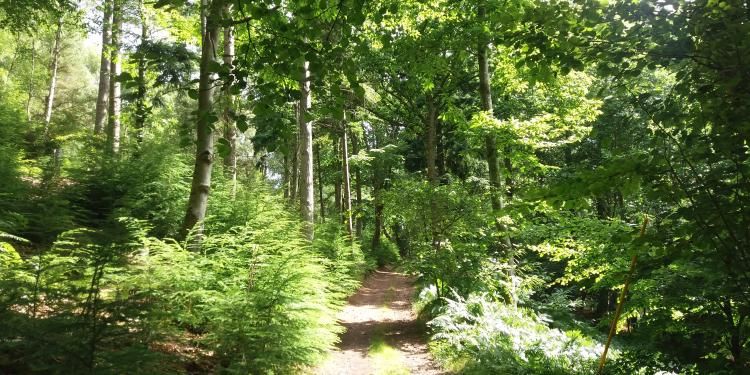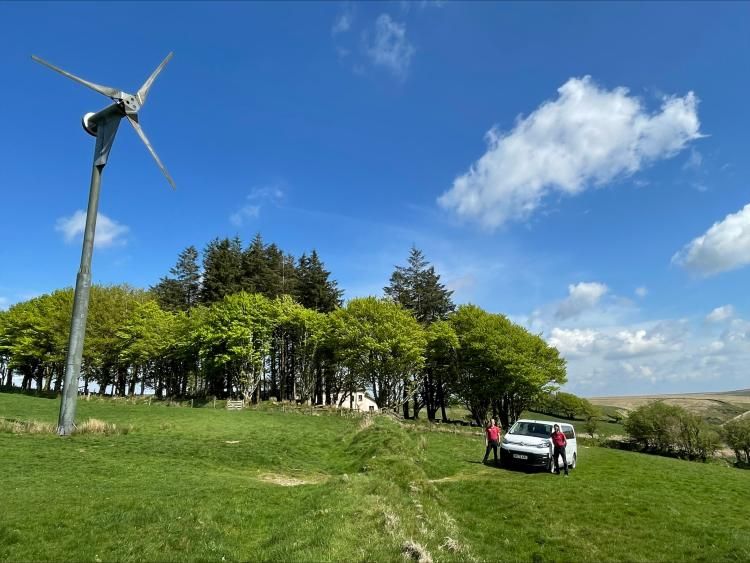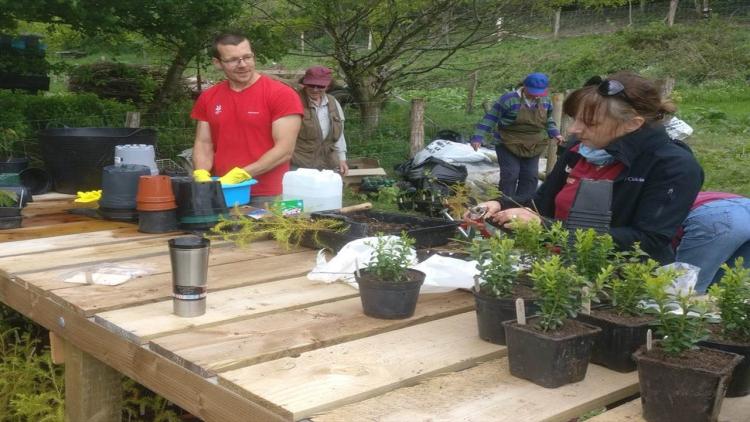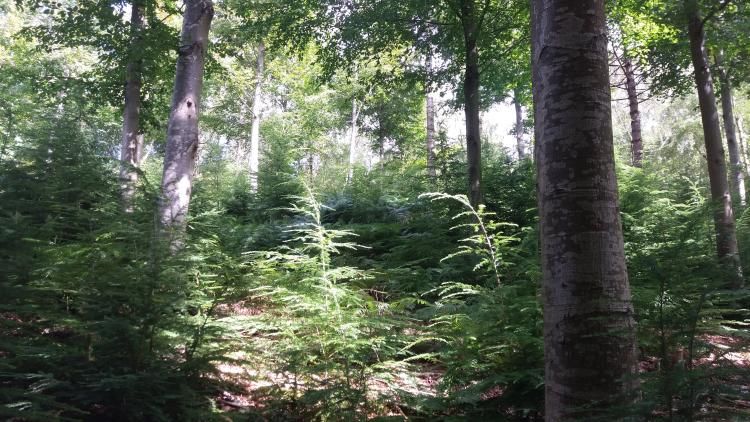Scheme:
Phase 3a Public Sector Decarbonisation Scheme
Technologies used:
Biomass boiler, Building Energy Management System (BEMS) - remotely managed
Region:
South West
Your partner for a low carbon future

Phase 3a Public Sector Decarbonisation Scheme
Biomass boiler, Building Energy Management System (BEMS) - remotely managed
South West
Funding awarded
Annual savings
Lifetime carbon savings tCO2*
Exmoor becomes one of the first national parks to join net zero initiative
Exmoor National Park Authority is committed to being carbon neutral by 2030. The Public Sector Decarbonisation Scheme funding has enabled the authority to make energy-saving improvements to Pinkery Outdoor Education Centre through the installation of a biomass boiler and additional battery capacity to store and use renewable energy. The biomass boiler is fueled by logs from local woodlands and wood pellets. A new monitoring system also provides live data to show how renewable energy is being used and improve the efficiency of how the energy demands of the centre are managed.

Pinkery Outdoor Education Centre provides residential and day visits for around 2,000 children each year, giving first-hand experience to young people on how to live sustainably in an off-grid centre that demonstrates renewable technologies and carbon neutrality.
The challenge
Exmoor National Park Authority (ENPA) provides residential courses for schools and groups to learn about and be inspired by the landscape and special qualities of Exmoor National Park. The Pinkery Outdoor Education Centre is located high on the moor in an isolated location and is off-grid with no mains gas, electricity or water. The heating system was run using an oil boiler, which was coming to the end of its life and needed replacing. Existing renewable energy systems include a wind turbine and solar panels, which provide electricity, with surplus energy being stored in batteries. A diesel generator provides back up power when needed. Domestic hot water is supplied from a combination of immersion heaters and the diesel boiler. Due to its exposed location high on the moors in the centre of Exmoor, the building and its systems need to be able to deal with extremes of weather. Roughly 20% of the Authority’s carbon footprint is from Pinkery.
The solution
A scheme was devised to reduce carbon emissions through replacing the old oil boiler with a new biomass boiler to provide space and water heating. Installation of additional battery capacity was included in the proposals to increase the storge of renewable energy generated by the wind turbine and solar PV panels for use during peak demand periods. The biomass boiler system includes advanced controls and zoning to enable efficient heating of the centre to reflect the energy demands of users, and the external weather conditions. Energy monitors have been added to the wind turbine, solar panels and batteries, to provide live data on renewable energy generation which can be shown to users of the centre as part of the learning and education about managing energy demands.
The impact
The scheme will significantly reduce Exmoor National Park Authority's carbon emissions by about 25%. It will deliver 605 tonnes of CO2 savings over its lifetime, which is more than 30 tonnes of CO2 per year. The logs for the biomass boiler are sourced locally, including from the park woodlands, which provides support for the local economy and enables the positive management of woodlands giving wider benefits for nature and climate. The wood pellets are also sourced locally where possible.

Lessons learned
The early stages of the project were delayed due to difficulties engaging project managers, and then getting the various technical reports completed. We had allowed a year for the project to be delivered so this led to the risk of it not being achieved within the timeframe. As a consequence, we reduced the scope of the project, focusing on the biomass boiler, additional battery capacity, and building management system, where the greatest carbon gains would be made. Other aspects of the project including a small area of triple glazing, additional solar PV capacity, and solar thermal were not progressed. Throughout the project, we had regular meetings with our Salix relationship manager to keep them up to date with the progress and changes to the project. They were very helpful in advising on the paperwork and processes needed for the grant funding.

This is a real boost to Exmoor National Park Authority’s carbon reduction strategy. With the help of Public Sector Decarbonisation Scheme funding, we can continue the great work that happens at our Pinkery Outdoor Education Centre, demonstrating sustainable solutions and fostering a vital connection between our local landscape and generations now and into the future.
October 2023
*tonnes of Carbon Dioxide, calculated using Green Book emissions factors for electricity published by the government.


